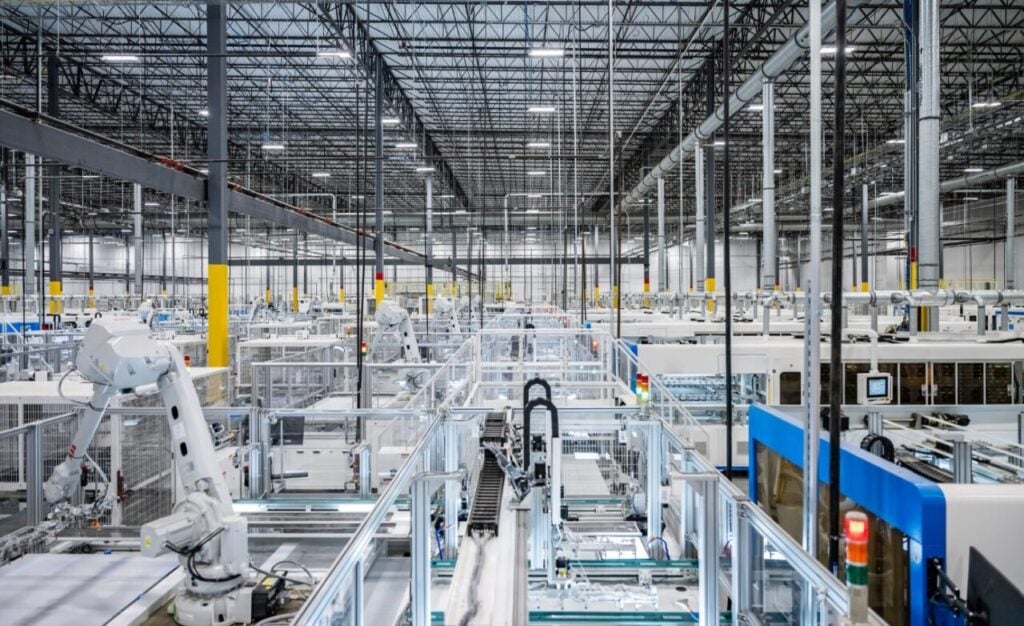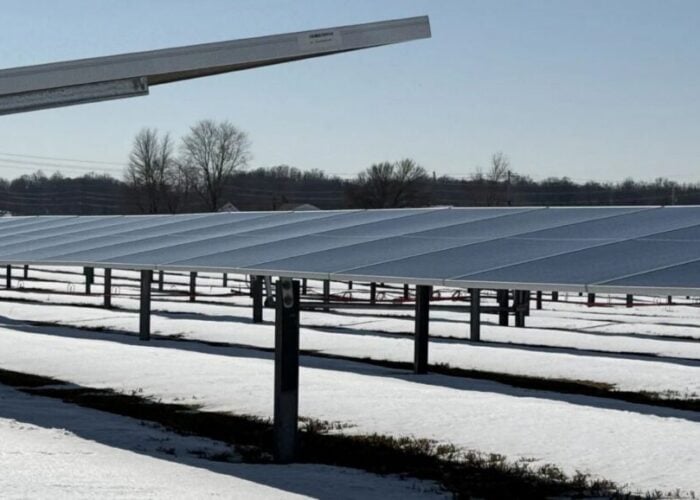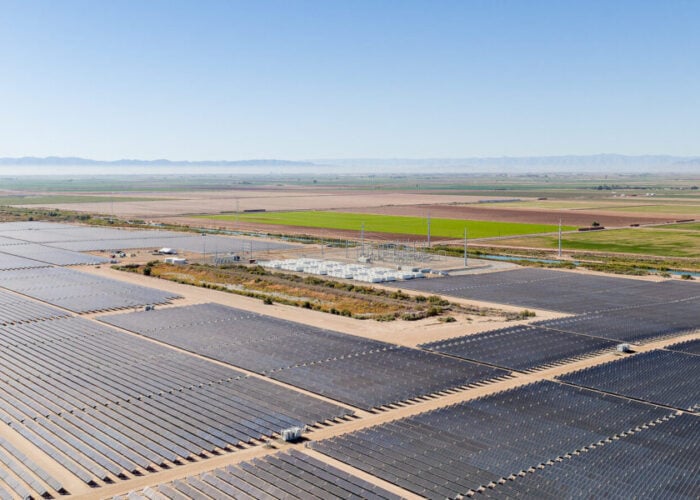
US solar manufacturer T1 Energy has acquired a minority stake in fellow US-based solar cell producer Talon PV.
Both T1 Energy and Talon PV are building solar cell manufacturing facilities in Texas. T1 Energy is building a 5GW site in Rockdale near Austin, and Talon PV is building a 4.8GW plant in Baytown.
Try Premium for just $1
- Full premium access for the first month at only $1
- Converts to an annual rate after 30 days unless cancelled
- Cancel anytime during the trial period
Premium Benefits
- Expert industry analysis and interviews
- Digital access to PV Tech Power journal
- Exclusive event discounts
Or get the full Premium subscription right away
Or continue reading this article for free
T1 Energy did not disclose the stake it has acquired or the value of its investment. The companies have entered into a Simple Agreement for Future Equity (SAFE) and “remain in discussions to potentially deepen the strategic relationship in the future”.
“We are excited by the opportunity to invest in another American solar energy project that complements our G2_Austin development,” said Daniel Barcelo, T1 Energy’s CEO and chairman of the board. “Expanding the output of American solar cells is necessary to support energy security, achieve regulatory compliance and build an American solar industry based on advanced manufacturing and cutting-edge solar technology.”
Both Talon PV and T1 Energy are planning to produce tunnel oxide passivated contact (TOPCon) cells at their respective facilities. The technology has been the subject of much intellectual property litigation in the US, as various companies sought to establish TOPCon production lines.
However, Talon PV has acquired a TOPCon IP portfolio from cadmium telluride (CdTe) module manufacturer First Solar, which it told PV Tech Premium would clear the way for commercial TOPCon cell production in the US. It is unconfirmed whether the two companies plan to share intellectual property after the investment.
“Our partnership with T1 Energy strengthens the foundation of US solar manufacturing. Together, we’re building scalable, non-FEOC supply chains that deliver true domestic content and reinforce America’s energy independence and national security,” said Adam Tesanovich, co-founder and CEO of Talon.
Both T1 Energy and Talon PV have emerged as major players in the US solar manufacturing industry, leading efforts to produce domestic solar cells alongside firms like ES Foundry and Suniva. The industry has built around 50GW of solar module production capacity, but cells and other upstream components have been far slower to materialise.
For its part, T1 Energy has inked a “landmark” deal with Michigan-based manufacturing giant Corning to source US-made polysilicon and silicon wafers. Combined with its planned cell and module production facilities, the deal would see a fully US-made silicon solar supply chain realised and would mark a significant moment in the country’s PV manufacturing industry.
Pro-Trump solar manufacturers
T1 Energy said both its project and Talon PV’s site are “supported by President Trump’s OBBBA (One Big, Beautiful Bill Act) and 45X tax credits.”
The company, which was formed when it bought Chinese solar manufacturing giant Trina Solar’s US module manufacturing facility last year, has previously expressed support for tariffs on PV imports to the US.
It said that the looming Section 232 tariffs on all polysilicon imports would “boost” American manufacturing and that further antidumping and countervailing duty (AD/CVD) levies would “strengthen our efforts to build an American advanced manufacturing champion”. Barcelo has also expressed support for Donald Trump’s “reciprocal” global tariff regime on all imports to the US.
Other industry observers and analysts have been more critical of the impacts of the president’s policies on solar manufacturing. We heard earlier this year from Christian Roselund, senior policy analyst at Clean Energy Associates (CEA), who said that the OBBBA was more damaging for manufacturers than solar development, as the twin issues of a shrinking solar end market and the removal of tax incentives to use US products put pressure on many firms.
However, PV Tech reported earlier this year that US solar manufacturing capacity has increased by 800% since the passage of the Inflation Reduction Act (IRA) in 2022, and module capacity is roughly equal to the size of the US market in 2024. Upstream components remain more challenging, and much of the US module market will still rely on increasingly expensive cell and wafer imports for the foreseeable future.
We published a series of interviews with leading figures in the US solar manufacturing industry in recent weeks. You can find them all on PV Tech Premium.
PV Tech publisher Solar Media will host the 12th edition of the Solar & Storage Finance USA event on 21-22 October 2025 in New York. Panellists will discuss the fate of US solar and storage in a post-subsidy world, the evolving economics of standalone BESS and de-risking solar and storage supply chains.
All are encouraged to respond to an anonymous survey on the US solar and storage sector, that will shape discussions at the summit. Tickets for the event are available on the official website.






